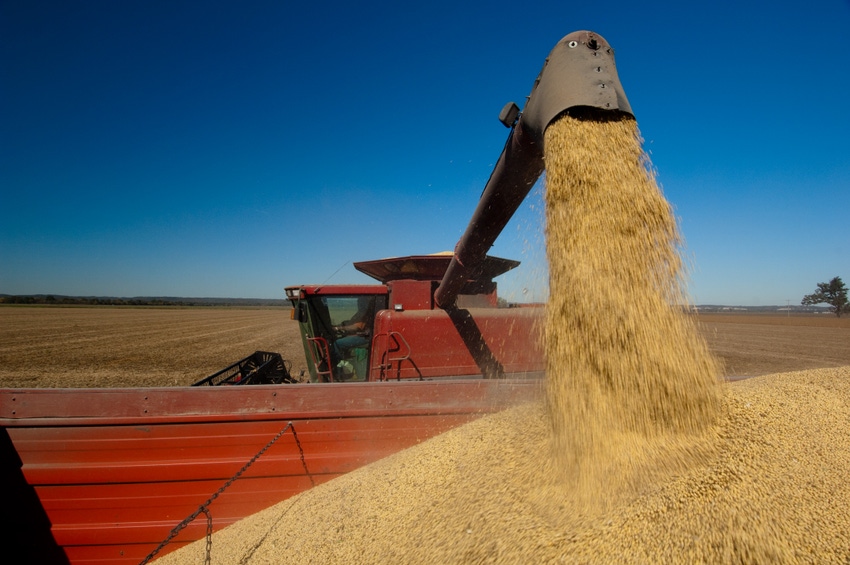October 5, 2017

Harvest has started with the expectation of above-average yields for Tennessee and other Southeast producers.
Will the yield be enough at the selling price to cover all obligations and family living? Some producers who forward-priced production on market rallies may show strong profitability with above-average yields. Others who had concerns on production, either from a late planted-crop or other issues and sold at harvest prices, may struggle to show profits.
In the scheme of things, it’s not really much different than any other year. Regardless of your financial position, there are at least 5 farm financial issues that need to be addressed to keep your farm business in order.
Know where you are financially. Most producers have a good idea where they stand, sometimes they neglect to know for sure because the news might be not what is desired. It is critical to know your financial position – favorable or unfavorable. If a producer has gone backward this year, the sooner that is determined the quicker alternatives can be analyzed to determine the direction of the farm operation. If a producer has had a good year, then knowing your financial position may open up doors of opportunity.
Are changes needed? After knowing where you are financially, determine whether there needs to be any major changes in the operation for 2018. Start sketching out a farm financial and production plan, revisions can occur later as needed. If you are planting wheat then your plan has started. If financially feasible, start exploring input deals or arrangements. Generally the best seed deals for prices and or financial terms happen when they are secured early. Producers will continue to have to monitor production costs or increase yields or both to be sustainable. Visit with your suppliers on what they estimate inputs will cost in 2018 and how they can be reduced. Evaluate seed varieties from University Research & Extension trials as well seed company data.
Evaluate your production system. Is it working? If it is not working, what will make it work? Are you as efficient as you can be – equipment, labor, and input management? Did problems either weed, insect, disease, or fertility develop in 2017 that will make you change systems in 2018. Know your fertility needs and start pricing their costs.
Crop insurance. Get your yield data to your crop insurance agent as soon as realistically possible. Did your current crop insurance program give you adequate risk management protection? Before the 2018 deadline (March 15 in Tennessee), review your farms and protection with your crop insurance agent. Make changes if necessary.
Tax planning. Visit with your accountant/tax preparer for any tax planning as the crop year winds down. Keep in mind any carryover sales from 2016 that occurred in 2017 and if any inputs were prepaid in 2016 for 2017. Any equipment purchases must be made for economic reasons not just to reduce income taxes. Should any crop be carried over to 2018 to sell and should any inputs be prepaid now for 2018? A special note – producers considering retirement within the next 3-5 years should set up a meeting with their tax professional to just discuss how to best wind down or transition their operation. Retiring without considering tax planning can make for some unwelcome financial and tax surprises.
Bonus issue: When is the best time for estate/transition planning? The answer is NOW.
Questions I ask producers while we are working on a farm financial plan:
Do you have an estate or transition plan?
If something should happen to you, what will happen to your family and farm?
Sometimes a plan is in place, but other times the answer is sobering. No plan is in fact a plan and it is generally chaotic. The bare minimum should be a will, power of attorneys, and health care directives. If additional family members are in the operation and hope to continue it then a transition/succession discussion needs to happen.
There are costs associated to getting your estate/transition/succession plan in order, but it is well worth it. It is human nature to not want to think about what is going to happen when we are not around. The first step in contacting and arranging a meeting with an attorney is usually the hardest. Your tax professionals also will need to be involved.
If you are looking at a transition/succession plan, determine if the operation is viable for transition/succession. A whole farm financial plan can assist in determining the viability. A lot of good information on estate and transition or succession plans are available online, the University of Tennessee Extension has a website at https://farmlandlegacy.utk.edu . Check with your local Extension office for additional information.
About the Author(s)
You May Also Like






